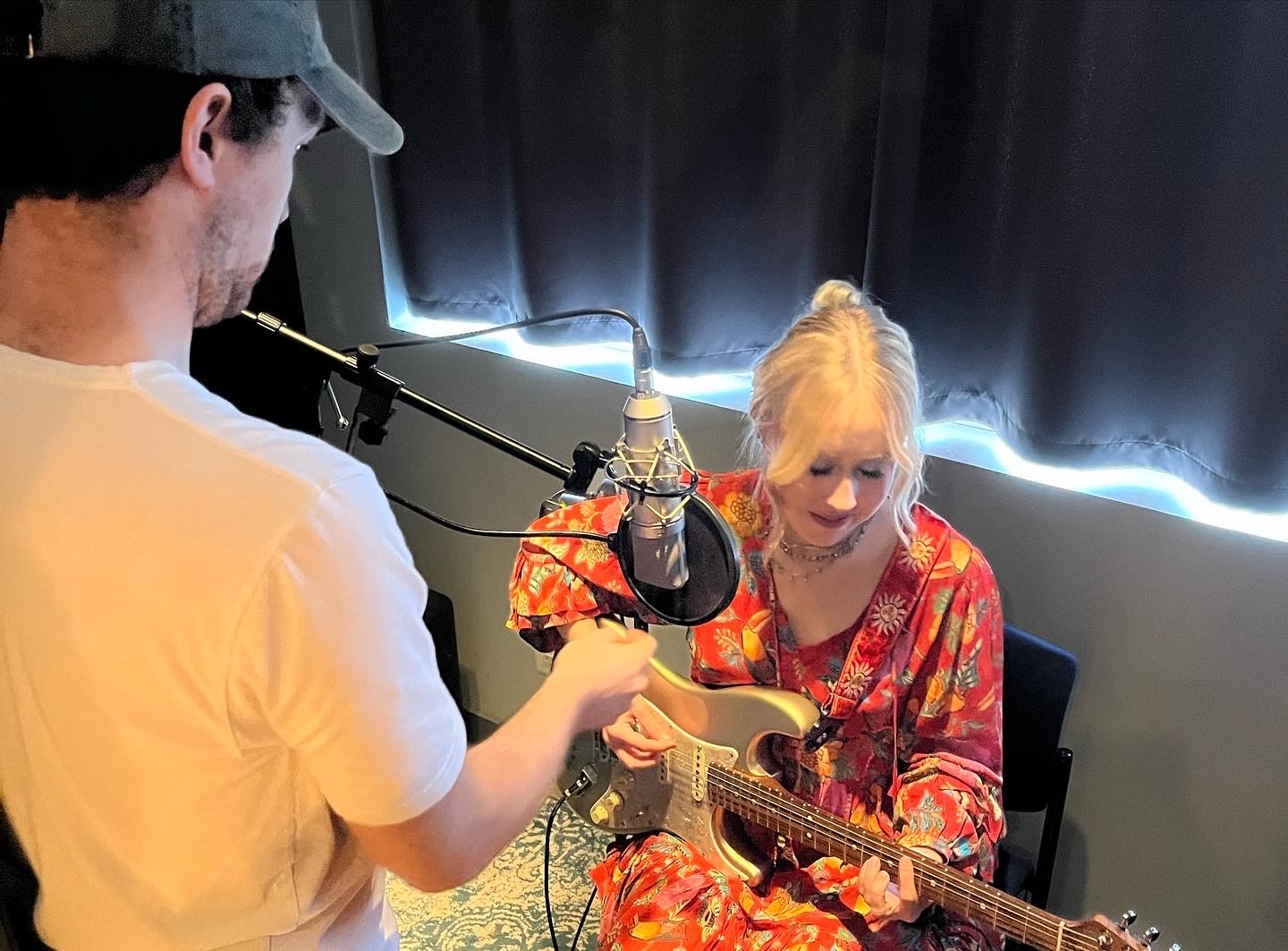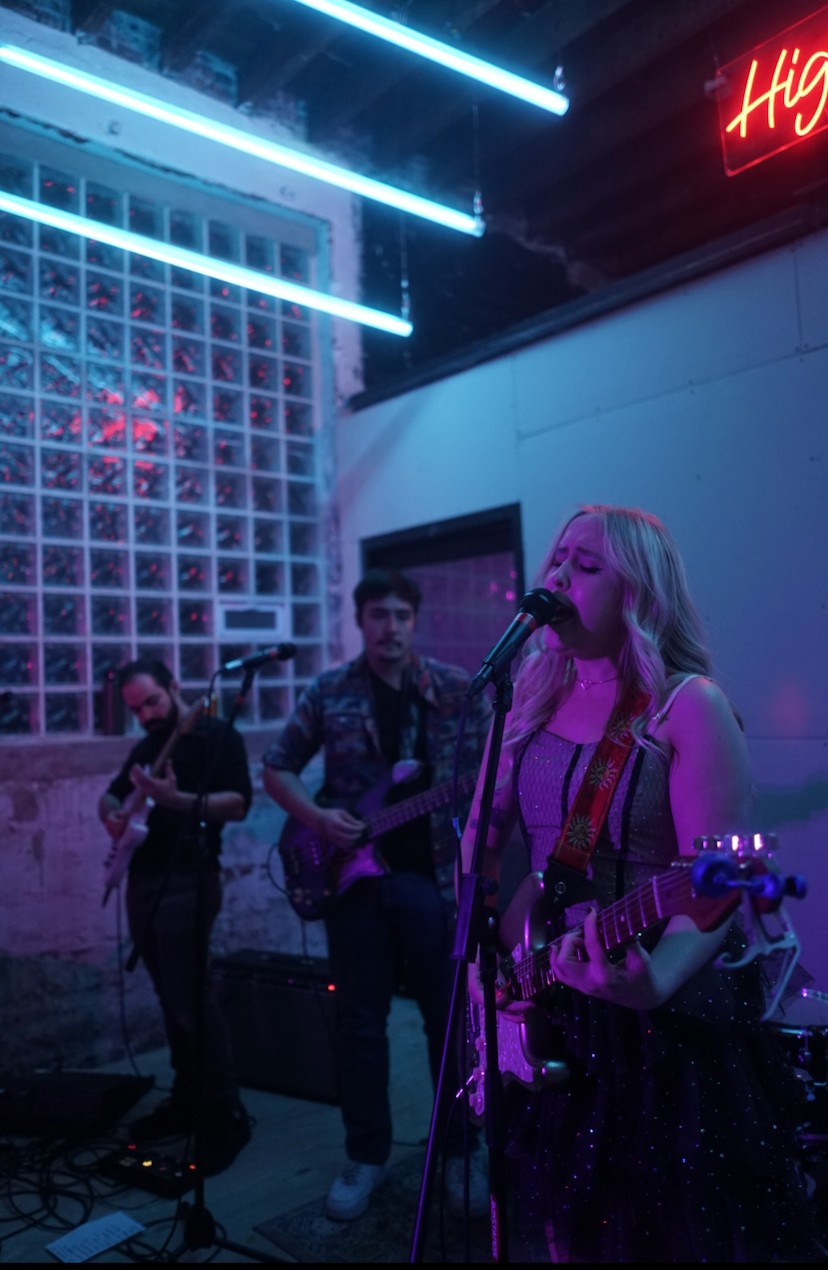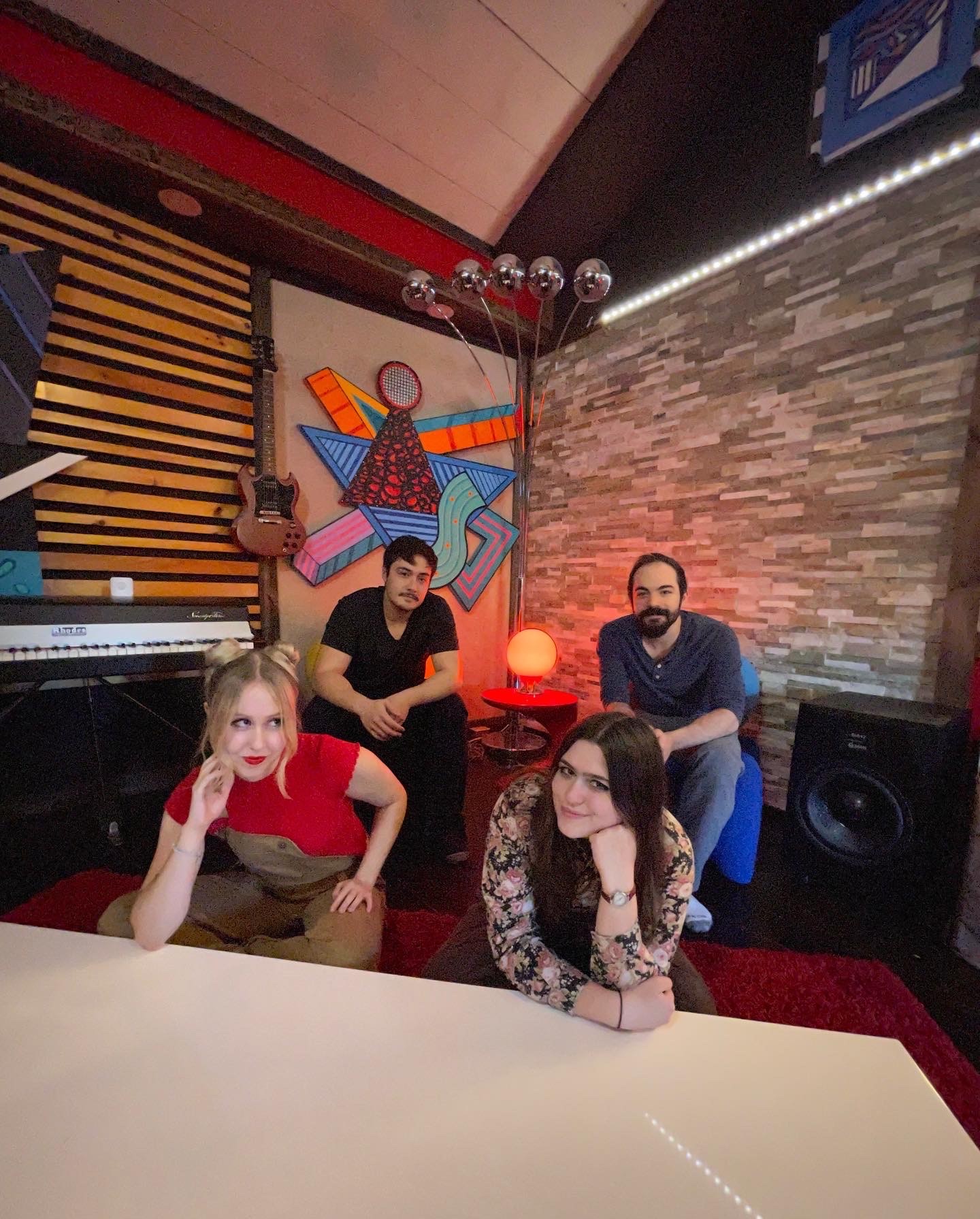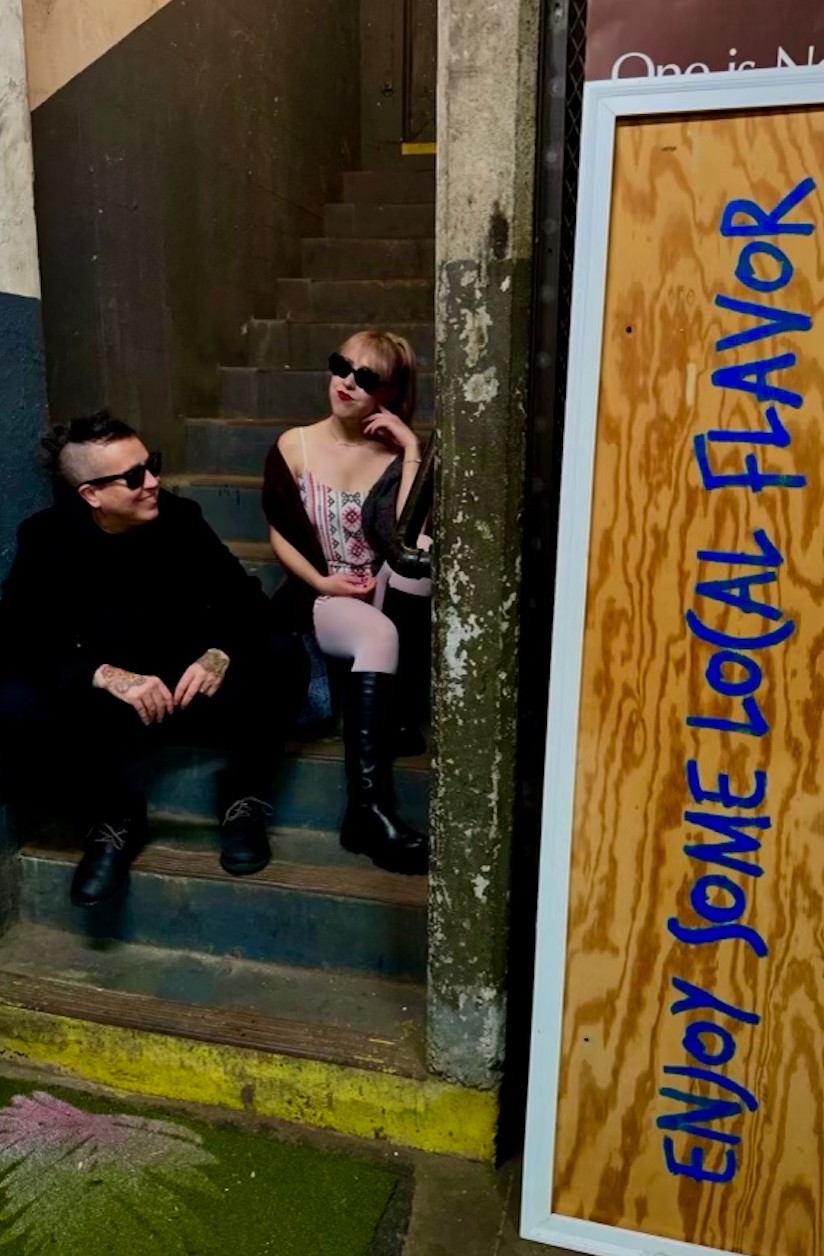We caught up with the brilliant and insightful Brea Fournier a few weeks ago and have shared our conversation below.
Brea, appreciate you joining us today. Can you tell us about a time that your work has been misunderstood? Why do you think it happened and did any interesting insights emerge from the experience?
I’ve never been a stranger to the feeling of being misunderstood, or as I like to call it “swimming upstream.” Maybe it’s because I’m an Aquarius or maybe it’s because we all hold our own personal values, but authenticity has always been imperative to not only my art, but the way I live my life. Growing up in a small and conservative town in Idaho, I was frequently bullied for my music and for showing up to school in bizarre outfits––tutus over jeans, pop-art leggings, frilly dresses, etc. I truly believe that something about these interactions solidified my brain chemistry: it became my mission to be so thoroughly myself that it would piss people off. Musically, my background is quite diverse. While my first introduction to singing was rigorous classical training, I quickly found myself swept up in the world of musical theatre. It wasn’t until I was 14 that I discovered bands like Green Day and Paramore and found my passion in writing my own songs. After pouring my heart into college applications, I was astonished when I was accepted to my dream school: the Clive Davis Institute of Recorded Music at NYU. It was there that my eclectic hodge-podge of influences all came together in creating my sound. While I had many wonderful professors who wholeheartedly believed in my music, I still found myself tirelessly (and occasionally hopelessly) defending my work. I didn’t fit in with my peers aiming to be top 40 radio songwriters, and I wasn’t quite avant-garde or strange enough for the experimental kids. Funnily enough, I found myself artistically clicking most with the film students.
It was during this time, partially inspired by these friendships, that I became infatuated with a particular film archetype: the Manic Pixie Dream Girl. A term coined by film critic Nathan Rabin, the MPDG is the girl in what feels like almost every romantic comedy or indie drama whose only purpose lies in her eccentricities that give the male protagonist a sense of life purpose and bridge the gap in his story from point A to B. I saw myself in her––someone who was never meant to be understood, but was also never given the chance to play the starring role in her own narrative. I felt compelled to be the person to give her the spotlight and depth she deserves. Last year, I formed my band Brea Fournier & the Dream Ballet, and just last week, we finished recording our debut concept album: “Manic Pixie Dream Girl!”


Great, appreciate you sharing that with us. Before we ask you to share more of your insights, can you take a moment to introduce yourself and how you got to where you are today to our readers
Throughout college, I met one by one three people who would eventually become the other members of Brea Fournier & the Dream Ballet: Ben Shanblatt, Noah Rosner, and Sophia Bondi. We played our first show as soon as New York City venues began resurfacing after the pandemic. Though I have been making music and performing on my own for a long time, something magical happened when the four of us began creating together under the pretense of my songs, and I heard them transform in real time into something I never could have begun to fathom. After years of being misunderstood, there was a shift in time and space, and these three unbelievably gifted musicians understood it. Understood me. Without ever needing to explain myself, I was given the gift of no longer needing to continue embarking on the often tireless and heartbreaking journey of artistic pursuit alone.
Our songs have always been feminist in nature, and our live performances are centered around a hyperfeminine aesthetic crossbred with a pop-punk attitude. It was only with their help that I was able to begin the Manic Pixie Dream Girl Project––a project in three parts that personifies and explores the inner workings of this infamous archetype. The first part of the project is a rock opera concept album by the band and myself, which I am over the moon to announce that we have just finished recording with our fabulous producer Barb Morrison, (Franz Ferdinand/Blondie) who also very much makes us feel understood. The second part will see this story told in sound translated to a live theatrical stage performance, the script for which was written by me and my longtime collaborator and friend, writer/director Karol Nowak III (The Velvet Hamster/The Universe Where). Lastly, we plan to take this story back to its roots in the form of a film. In the midst of this journey, I am finding that there is not a single better feeling in the world than working towards a shared creative vision with a group of such talents I am beyond blessed to have in my life.
Is there mission driving your creative journey?
Back to the topic of mischaracterization and feeling misunderstood, it has ironically only been through my exploration of a female film archetype that embodies these emotions that I have begun to feel understood myself. Though I am so grateful for the resilience it gifted me, when I think back on all my time “swimming upstream,” I ache for those who feel the way I did. Women, non-men, LGBTQ, non-white, and neurodivergent folks are cast by society into this “oh, we don’t understand this, so let’s just put it over here and not pay it any mind” pile. Difference is a direct threat to those in power, whether on their part it be conscious or systemic. As a student of intersectional feminism, I also recognize that my privilege as a white and cisgender woman has spared me from much of the anguish of an outcast. What I have recognized is that I have a weapon against this societal sameness in my music, and I feel compelled to use my voice and share my own personal narrative in hopes that others feel this understanding they deserve. Earlier this year, I shared my first glimpse of the Manic Pixie Dream Girl Project in the form of a short film Proof of Concept. I posted this to TikTok and was absolutely floored by the response. 17,000 views on this first little glimpse of the piece obviously felt amazing, but it was the comments I received that have fueled me to continue this endeavor. All sorts of people related to the Manic Pixie Dream Girl’s story. One person said that it described their autism, another girl mentioned she felt it in being plus-sized. And while there have absolutely been days I wanted to throw in the towel (and there will surely be plenty more), there is one comment that makes swimming upstream a little easier: “I have never felt so understood while being explained by someone else. But this is it.”


How can we best help foster a strong, supportive environment for artists and creatives?
Oh geez, this is a long list, but to be honest it all boils down to one very simple thing for me, and that is direct monetary support. It’s been said a million times, but the pandemic really exposed just how essential art is to our day-to-day lives, our emotional health, and the overall human experience. When we lost everything, we clung to movies and books and music with white knuckles and hearts that needed––imperatively––to feel understood. Our current economic system, at least in the United States, has somehow brainwashed us into undervaluing art in favor of consumerism and “real” careers. Millions of artists are left supporting not only themselves but society at large in service industries just to survive. More and more corporations, both locally and globally, are emerging with systems that exploit artistic labor for an enormous profit, paying the creator themselves literal pennies (or fractions of them) for their work. Our society at large needs a radical change in mindset and to put systems in place that give artists the resources they need to create, sell, and support themselves off of their art. We’ve seen the beginnings of this in countries like Australia and Sweden. While I’m not sure how much hope I have for this change to take place, I do think there are things we can do as an artistic community to plant the seeds. So, some words of encouragement for my fellow creators: The more we lift each other up (both emotionally and financially), the more we provide for ourselves. Go see your friends’ shows (and pay for your own ticket), buy their merch, create zines and DIY venues that bring the profits back to the artistic community to which they belong. Don’t take advantage of your fellow artists and don’t let anyone take advantage of you. Remember that YOU’RE the creator, you made the art with your beautiful brain, and the corporations would not survive without you. As artists, I do believe that we feel things so deeply so that others don’t have to, and what an important service we are providing in the process.
Contact Info:
- Website: https://www.breafournier.com/
- Instagram: https://www.instagram.com/breafournier/
- Facebook: https://www.facebook.com/BreaFournierMusic/
- Twitter: https://twitter.com/thebreafournier
- Youtube: https://www.youtube.com/@BreaFournierMusic
Image Credits
For main image, credits go to Tyler Clark. Featured in images: My band, Brea Fournier & the Dream Ballet my producer, Barb Morrison (sunglasses picture)


